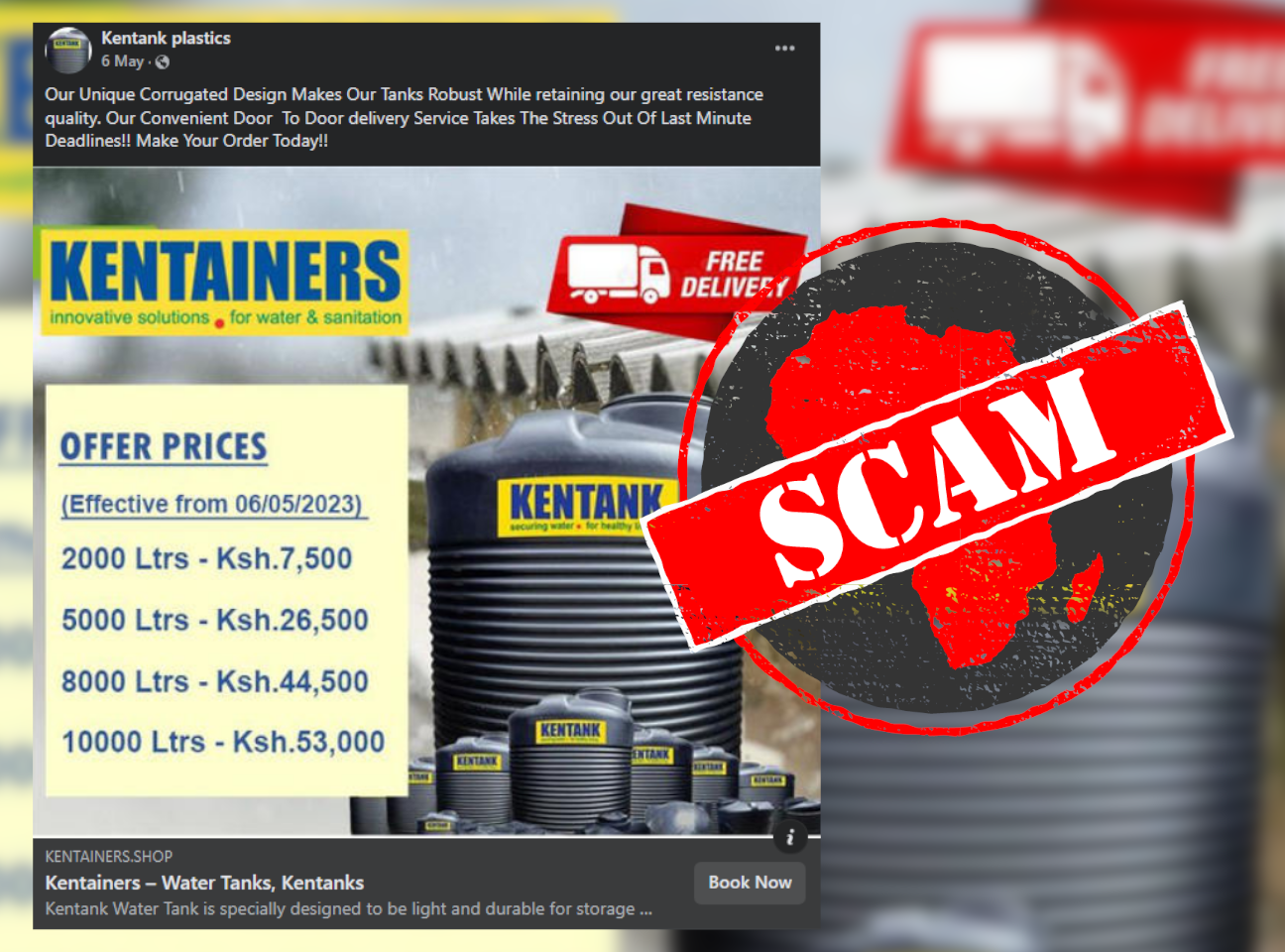IN SHORT: “Kentank”, a brand name used by one of Kenya’s major water tank manufacturers, is being used by at least two fake accounts on Facebook to scam the public. Don’t fall for their up to 40% discounts.
Facebook pages Kentanks and Kentank plastics are advertising water tanks at discounted prices.
Their posts feature the Kentank brand of tanks manufactured by Kentainers Limited, a company in Kenya.
One advert, published on 22 March 2023, reads: “We as Kenya's Number one Plastic Tanks producer are rewarding our clients this rainy season with unbelievable sale!! Do not be left out!!! order yours today!!!”
Both Facebook pages are linked to a site with the URL kentainers.shop that promises discounts of up to 40% and free delivery countrywide.
The posts have attracted hundreds of comments here and here.
But are the Facebook pages and the offers to be trusted? We checked.

Signs of a scam
Both pages are new to Facebook, with Kentanks created on 22 March and Kentank plastics created on 2 May. A newly created page with seemingly generous offers is usually a sign of a scam.
We noted that both pages are linked to the same website and each has less than 250 followers. It is unlikely that a reputable company, operating for many years in Kenya, would just be starting out on social media.
Kentanks uses two websites with different URLs – kentainers.shop and kentainers.online. This is a red flag since it is unlikely for a company selling the same product to create and run two websites at the same time.
The official website for Kentainers Limited is kentainers.co.ke. None of the discounts have been posted there. The website also provides links to its social media pages.
The official Facebook page for the company is Kentainers Ltd and has also not posted any of the offers. Similarly, its Twitter account doesn’t feature the discounts.
The company has also stamped the word “fake” on a screenshot of one of the websites featured on the Kentanks page.
To help protect yourself against scams like this, see Africa Check’s guide to Facebook scams and how to spot them.
Republish our content for free
For publishers: what to do if your post is rated false
A fact-checker has rated your Facebook or Instagram post as “false”, “altered”, “partly false” or “missing context”. This could have serious consequences. What do you do?
Click on our guide for the steps you should follow.
Publishers guideAfrica Check teams up with Facebook
Africa Check is a partner in Meta's third-party fact-checking programme to help stop the spread of false information on social media.
The content we rate as “false” will be downgraded on Facebook and Instagram. This means fewer people will see it.
You can also help identify false information on Facebook. This guide explains how.




Add new comment